
views
Storing Potatoes Properly
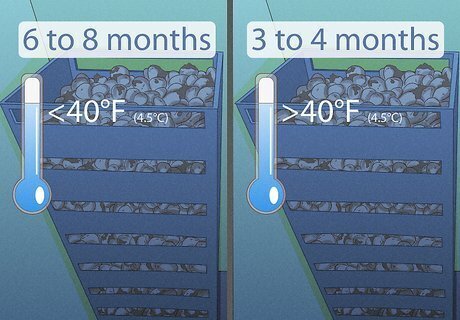
Store potatoes someplace cool. The ideal temperature is somewhere between 45 and 50°F (7 and 10°C). You can, however, store potatoes in places as cool as 38 and 42°F (3.4 and 5.6°C), without affecting the flavor or texture too much. Wherever you decide to store the potatoes, make sure that the temperatures remain consistent. If they change too much, the potatoes may start to rot or sprout. If you store the potatoes below 40°F (4.5°C), use them within 6 to 8 months. If you store the potatoes above 40°F (4.5°C), use them within 3 to 4 months.
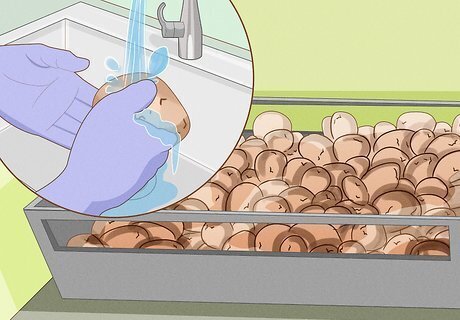
Make sure that the storage area is dry, and don't wash the potatoes before you store them. Save the washing for when you are ready to cook them. If you wash the potatoes first, you risk trapping moisture in the skin. This can cause the potatoes to rot sooner. If the storage area is too dry, your potatoes may shrivel. If this happens, move the potatoes to a place with higher humidity; about 80 to 90 percent would be ideal. Make sure that the potatoes get good air circulation, however, or they will rot.
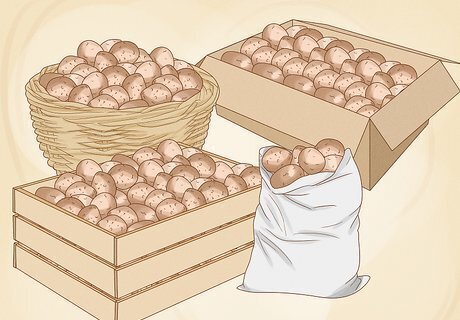
Keep potatoes in a paper bag to ensure proper ventilation. Avoid plastic bags, as they tend to trap warmth and moisture. Instead, plant and gardening specialist Olivia Choong suggests "keeping them in a well-ventilated container, such as a basket or crate." Choong advises that "a paper bag or some kind of netting" can also work well. Here are some other suitable containers to store potatoes in: Cardboard boxes Cotton or muslin bags
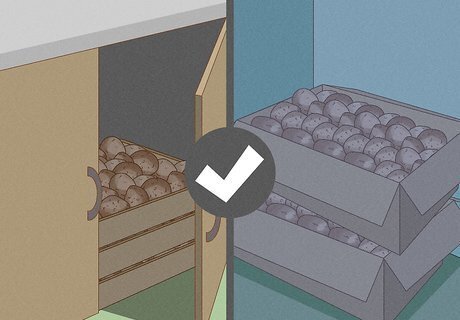
Keep the potatoes someplace dark. Ideal storage places include basements, cabinets, closets, and garages. Too much light, especially sunlight, can cause the potatoes to start sprouting. It can also cause the potatoes to overproduce a chemical called Solanine, which causes them to turn green and taste bitter. If you notice the skin turning green, cut it off before you cook and eat the potato. If the green has gotten into the potato flesh itself, throw the potato away.
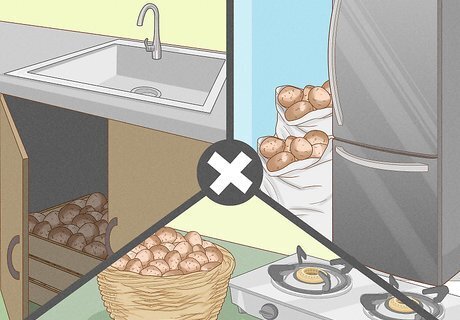
Avoid storing potatoes in places that tend to get warm. These include cabinets beneath the sink and next to large appliances, such as stoves and refrigerators. Potatoes will start to sprout if they are kept in a warm area. Plant and gardening specialist Olivia Choong also advises against "storing potatoes in the fridge, as this turns the potatoes' starches into sugars. This not only alters the flavor but can possibly form acrylamide, a chemical that's been flagged as a cancer risk."
Using Other Storage Tips
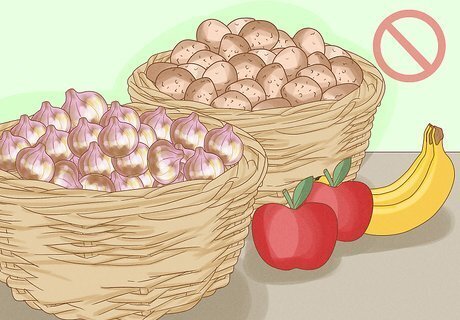
Avoid storing potatoes near onions, apples, bananas, pears, and other fruit. There seems to be a lot of debate regarding whether or not apples can keep potatoes from sprouting. According to plant and gardening specialist Olivia Choong, "Onions and apples emit ethylene gas, which speeds up the sprouting process." Some studies have also shown that potatoes can cause apples to become soft and mushy. On the other hand, some people found that keeping an apple or two with potatoes will keep sprouting at bay.
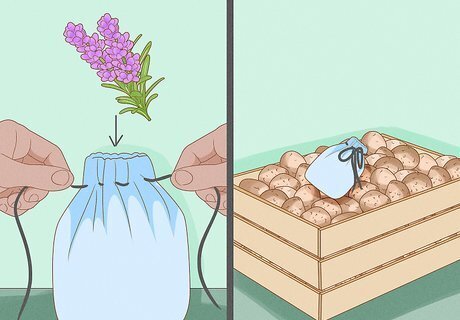
Consider keeping some herbs with the potatoes. Studies have shown that herbs, such as lavender, rosemary, and sage, contain oils which help prevent rot and decay in potatoes. These same oils may also help keep the potatoes from sprouting.
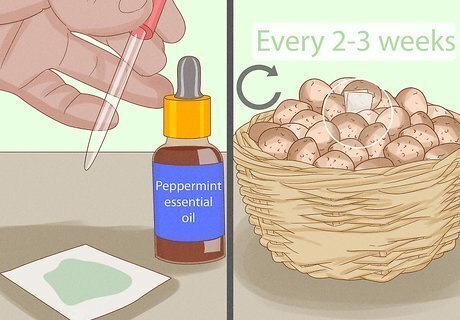
Try using spearmint or peppermint essential oils. Soak a small piece of blotter paper with the essential oil, and tuck it into the container with the potatoes. Studies have shown that these oils can inhibit sprouting in potatoes. Reapply the essential oil every 2 to 3 weeks, or when needed. Avoid using this method if your storage container is made from metal or plastic. Essential oils can deteriorate these materials. Clove essential oil may also be used, but it requires a thermal or aerosol application, and thus not recommended for home use.

Understand that potatoes will eventually sprout, usually within 1 to 4 months. Nothing lasts forever, especially food. While you can keep potatoes from sprouting prematurely, eventually they will start to go bad and sprout. Depending on the variety, potatoes will start forming sprouts naturally between 30 and 140 days. Some people find that the following varieties generally last longer than others: Katahdin, Yellow Finn, and Yukon Gold. If you are storing a variety of potatoes, eat the varieties that don't last as long first.




















Comments
0 comment